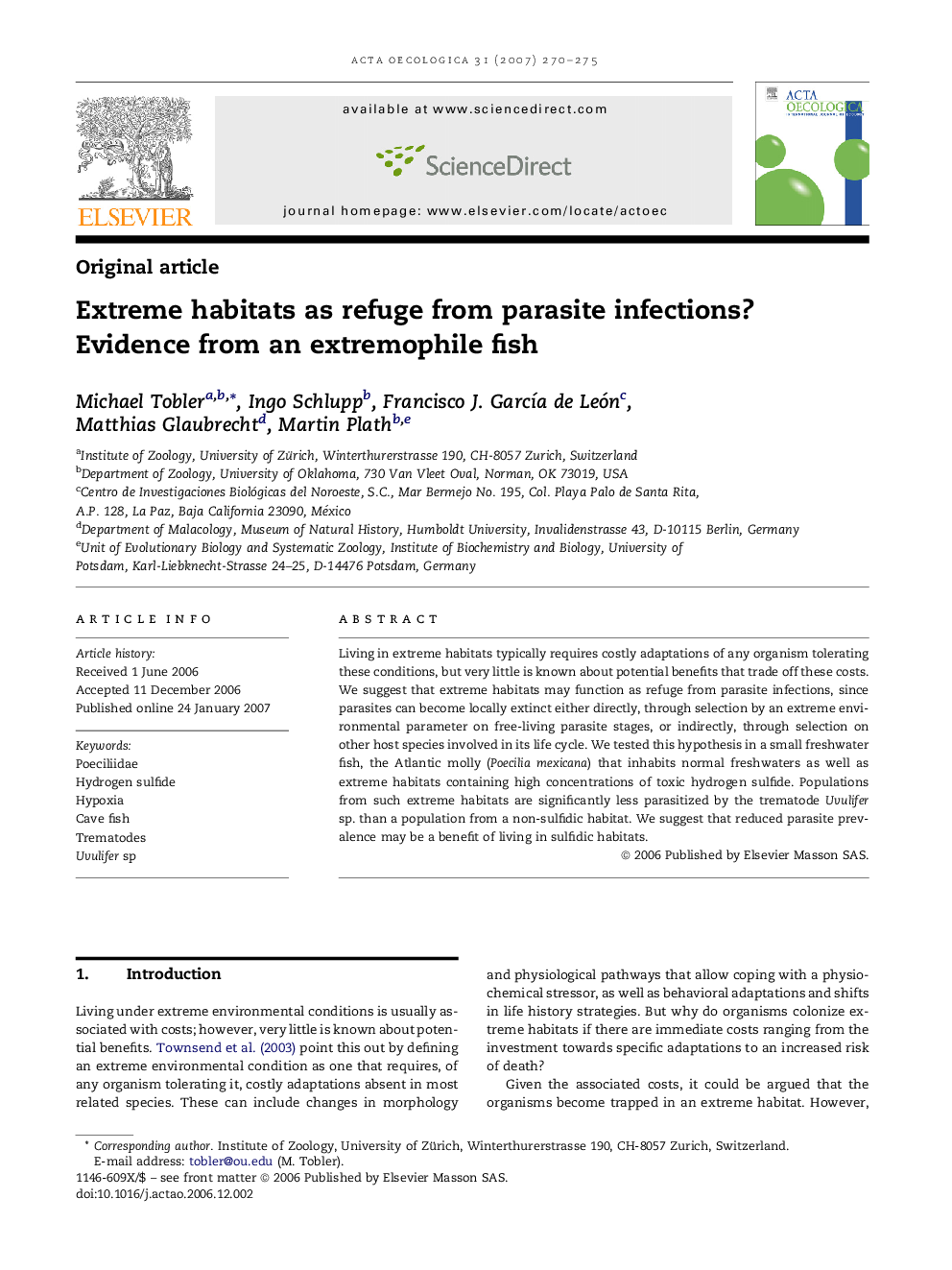| Article ID | Journal | Published Year | Pages | File Type |
|---|---|---|---|---|
| 4381653 | Acta Oecologica | 2007 | 6 Pages |
Living in extreme habitats typically requires costly adaptations of any organism tolerating these conditions, but very little is known about potential benefits that trade off these costs. We suggest that extreme habitats may function as refuge from parasite infections, since parasites can become locally extinct either directly, through selection by an extreme environmental parameter on free-living parasite stages, or indirectly, through selection on other host species involved in its life cycle. We tested this hypothesis in a small freshwater fish, the Atlantic molly (Poecilia mexicana) that inhabits normal freshwaters as well as extreme habitats containing high concentrations of toxic hydrogen sulfide. Populations from such extreme habitats are significantly less parasitized by the trematode Uvulifer sp. than a population from a non-sulfidic habitat. We suggest that reduced parasite prevalence may be a benefit of living in sulfidic habitats.
